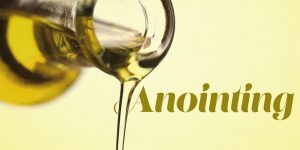
Mark 14:1-11
¹Now the Passover and Unleavened Bread were two days away; and the chief priests and the scribes were seeking how to seize Him by stealth and kill Him; ²for they were saying, “Not during the festival, otherwise there might be a riot of the people.”
³While He was in Bethany at the home of Simon the leper, and reclining at the table, there came a woman with an alabaster vial of very costly perfume of pure nard; and she broke the vial and poured it over His head.
⁴But some were indignantly remarking to one another, “Why has this perfume been wasted?
⁵For this perfume might have been sold for over three hundred denarii, and the money given to the poor.” And they were scolding her.
⁶But Jesus said, “Let her alone; why do you bother her? She has done a good deed to Me.
⁷For you always have the poor with you, and whenever you wish you can do good to them; but you do not always have Me.
⁸She has done what she could; she has anointed My body beforehand for the burial.
⁹Truly I say to you, wherever the gospel is preached in the whole world, what this woman has done will also be spoken of in memory of her.”
¹⁰Then Judas Iscariot, who was one of the twelve, went off to the chief priests in order to betray Him to them.
¹¹They were glad when they heard this, and promised to give him money. And he began seeking how to betray Him at an opportune time.
Devotional
Jesus was besieged by enemies,
betrayed by his friend Judas,
but anointed by a woman.
The life of Jesus on earth has been a series of temptations.
From the beginning of his actions, to the end of his life, when they reached a climax:
▪︎ betrayal by one of his disciples,
▪︎ the others forsake him,
▪︎ and then following, as punishment for our sins, torture, mockery, and finally the crucifixion.
The Passover and the Feast of Unleavened Bread were near.
At the Passover they ate the Passover lamb and the following week unleavened bread.
Many pilgrims then went to Jerusalem, because at passover the deliverance from Egypt was commemorated. At the same time, people hoped for the liberation from the Roman yoke (Compare Luke 24:21).
Understandably, the Jewish leaders risked no attack on Jesus in this turmoil (Mark 14:1,2). Notice how human cunning (perhaps the Jewish leaders thought they were still going God’s way), and God’s own counsel and way, go together (Compare Genesis 50:20; Acts 2:22-24).
Then Jesus’ meal comes to Simon, a healed leper.
A wonderful gathering, where Judas is also present, who will soon hand over Jesus for 30 pieces of silver (Matthew 26:14-16), that is the amount that had to be paid for a killed slave in Exodus 21:32. There is also a woman who pours for the value of more than 300 shillings of spikenard myrrh over Jesus’ head.
One penny was the daily wages of a workman (Matthew 20:1,2).
So 300 shillings therefore constitute an annual wage.
In order to pour out that oil, the woman had to break the neck of the jar, otherwise the oil would only come out drop by drop.
In this way she shows her love and gratitude to Jesus (Mark 14:3).
Some attendees scold her for such a waste of money. Jesus then says that people can still think of the poor enough.
Something much more important is at stake.
This woman has prepared His funeral by her act (Mark 14:4-9).
Soon there will be no opportunity to anoint His body before His burial (Compare Mark 15:46-16: 1).
The measure is full for Judas.
He wants to get rid of Jesus (Mark 14:10,11).
Was he frustrated that Jesus did not want to deliver the Jews from the Romans?
In any case, he is unaware that he is preparing the most precious of all sacrifices. (Matthew 20:17-19).
Question for self-reflection
▪︎ How do you deal with the Lord Jesus?
Twitter: @dr-h-schoemakergmail-comrHarry
Website 1: https://devotionals.harryschoemaker.nl
Website 2: http://bijbelplaatjes.nl





God bless. He give His life to set us Free but still there are till many evils What much one do to be Save?